You should never store these 5 things in your shed over winter - now is your last chance to move them
Do you have any of these in your shed?
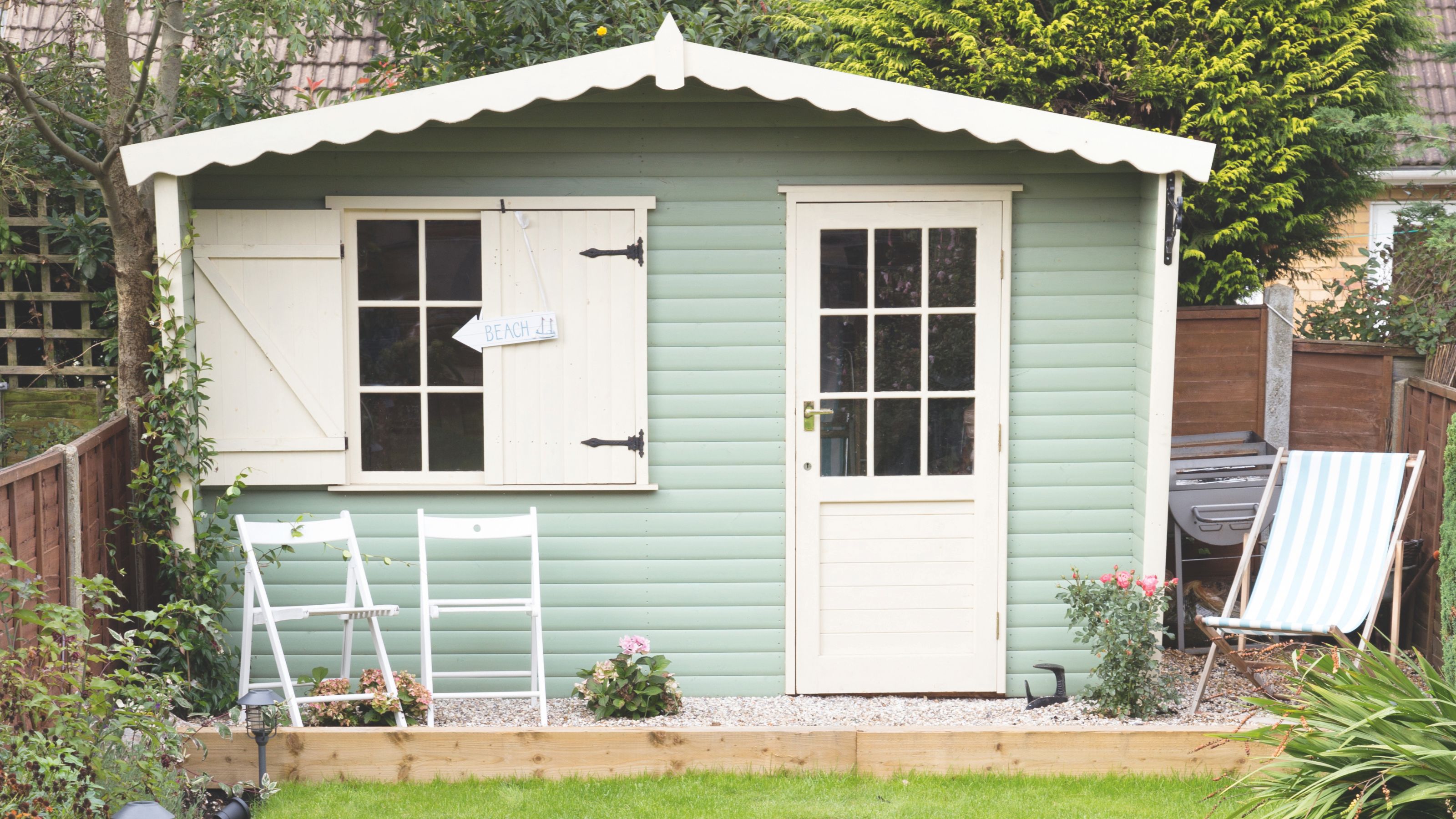

Now that the seasons are changing and your gardening efforts are winding down, you might be looking to pack all of your bits and bobs away until next spring. And while you can store some things in your shed, it’s important to note that there are certain things you should never store in a shed over winter.
Yes, having somewhere to store dirty and bulky garden gadgets and tools can be a godsend for those who have limited storage space in their home. Nobody wants a lawn mower in their living room, after all. However, while the best storage ideas for sheds can keep your plant pots, shears, and garden accessories safe from the cold and wet weather in winter, it could spell disaster for other items.
A spokesperson for GardenBuildingsDirect explains, ‘Garden sheds are really handy for storage, but it is important homeowners don’t mistake them as a storage space for all household items. Storing items incorrectly can come at a cost and creates unnecessary waste.’ These are the five things you should never store in a shed over winter.
1. Lawn mower and power tool batteries
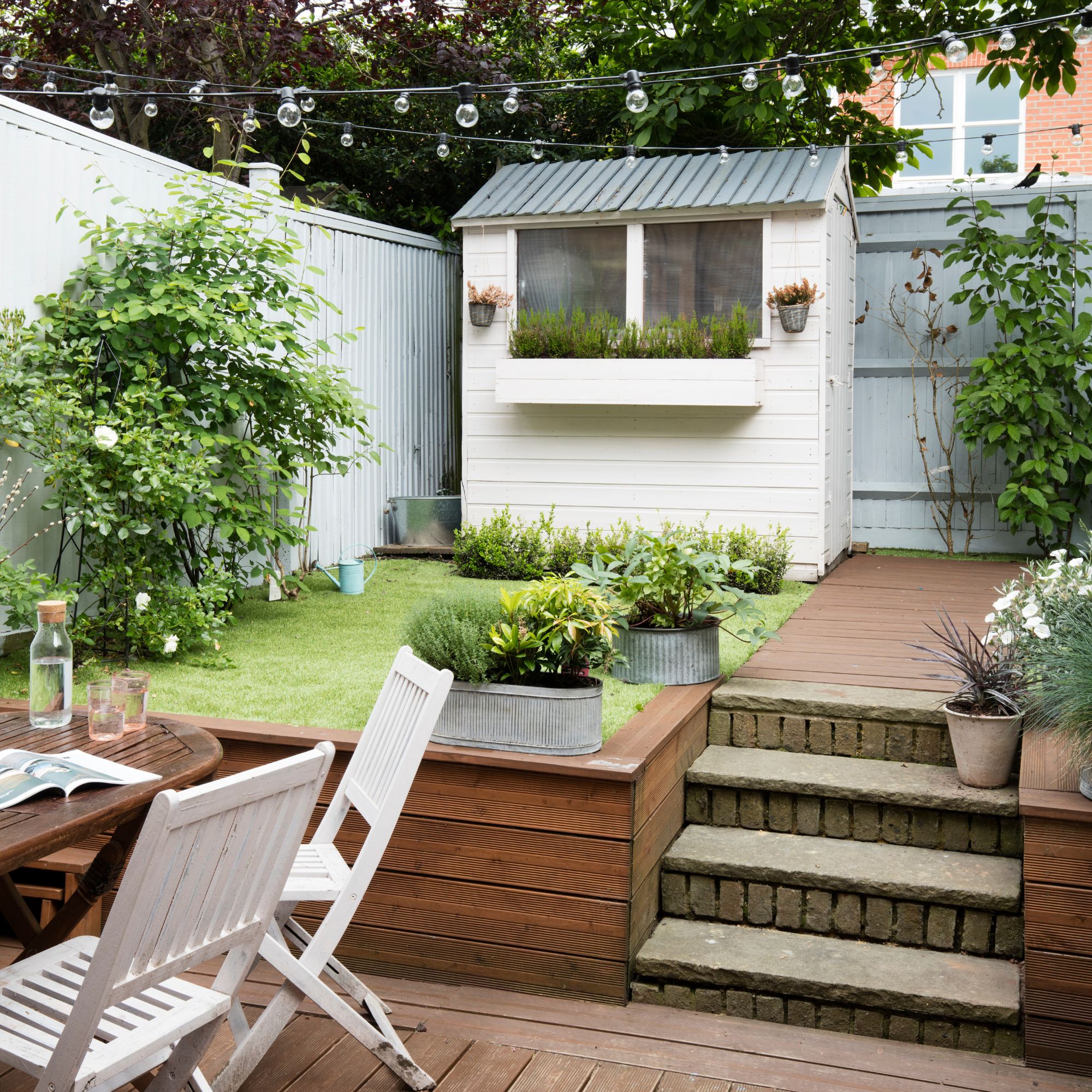
When you cut your lawn for the final time before winter, you may be inclined to pop your lawn mower and other power tools in the shed for safety.
And while there’s nothing technically wrong with that, you need to know how to store these items properly. After all, the best lawn mowers and strimmers need a little TLC before they can be tucked away for winter.
When storing a lawn mower over winter and storing a strimmer over winter, you need to be wary of the power source. If they are battery-powered, you must always store the batteries elsewhere and NOT in the shed.
As the experts from GardenBuildingsDirect explain, ‘Cold temperatures can reduce the efficiency and lifespan of power tool batteries, so leaving them in the shed during autumn and winter could mean you have to replace them.’
Get the Ideal Home Newsletter
Sign up to our newsletter for style and decor inspiration, house makeovers, project advice and more.
Instead, Jim Kirkwood, garden expert at Worx, advises, ‘Store the batteries in a cool, dry place (avoiding freezing temperatures) and away from any direct sunlight. Leaky sheds are not the best place for storing batteries, so bring them indoors if you can’t guarantee a dry environment.’
When you’ve removed the batteries and stored them properly, you can focus on keeping your lawn mower and other tools safe. We’d recommend hanging them on the wall so they stay protected.
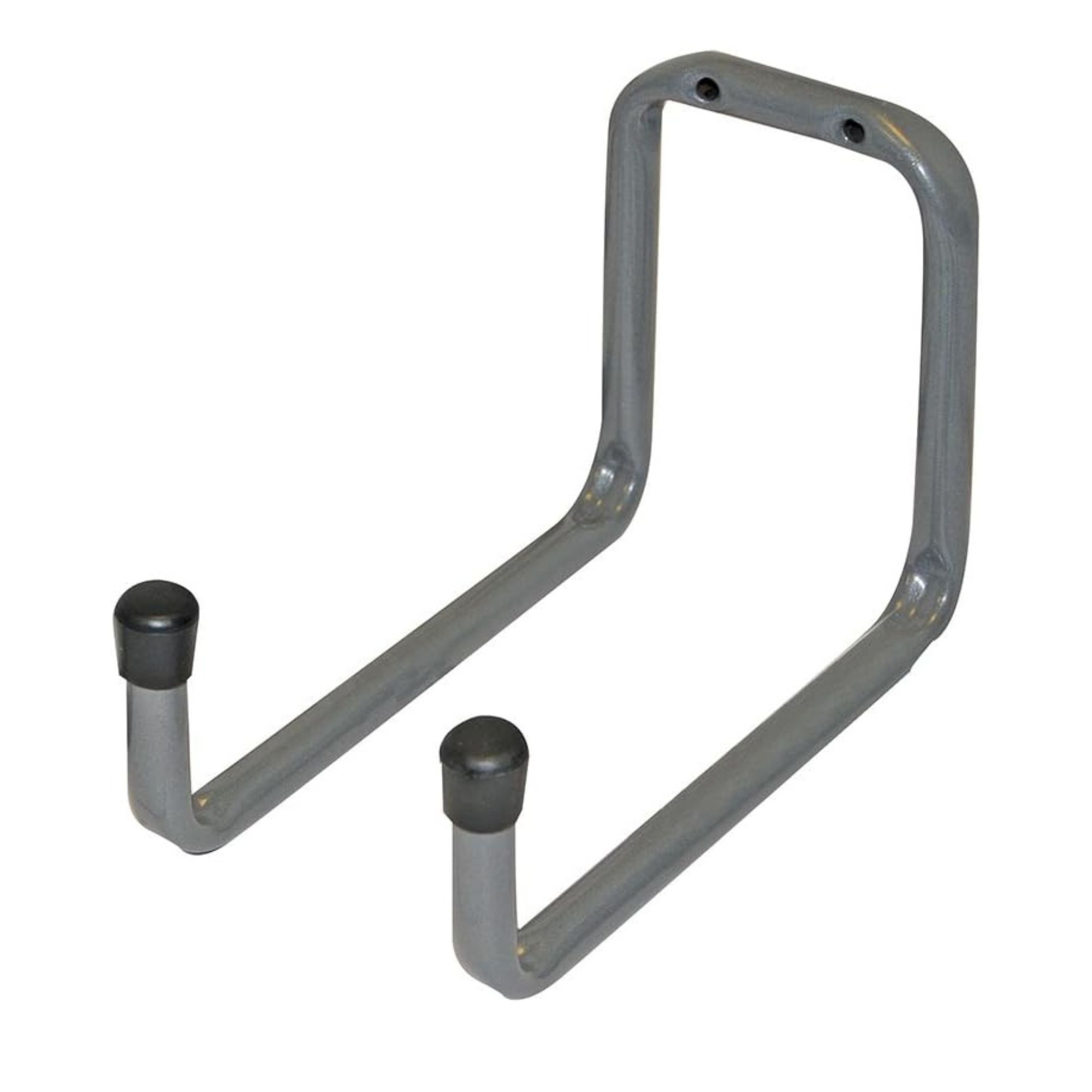
This wall mount is ideal for your lawn mower, strimmer, or other power tools. Simply attach to the wall in your shed or garage and hang the tools by the handles.
2. Paint
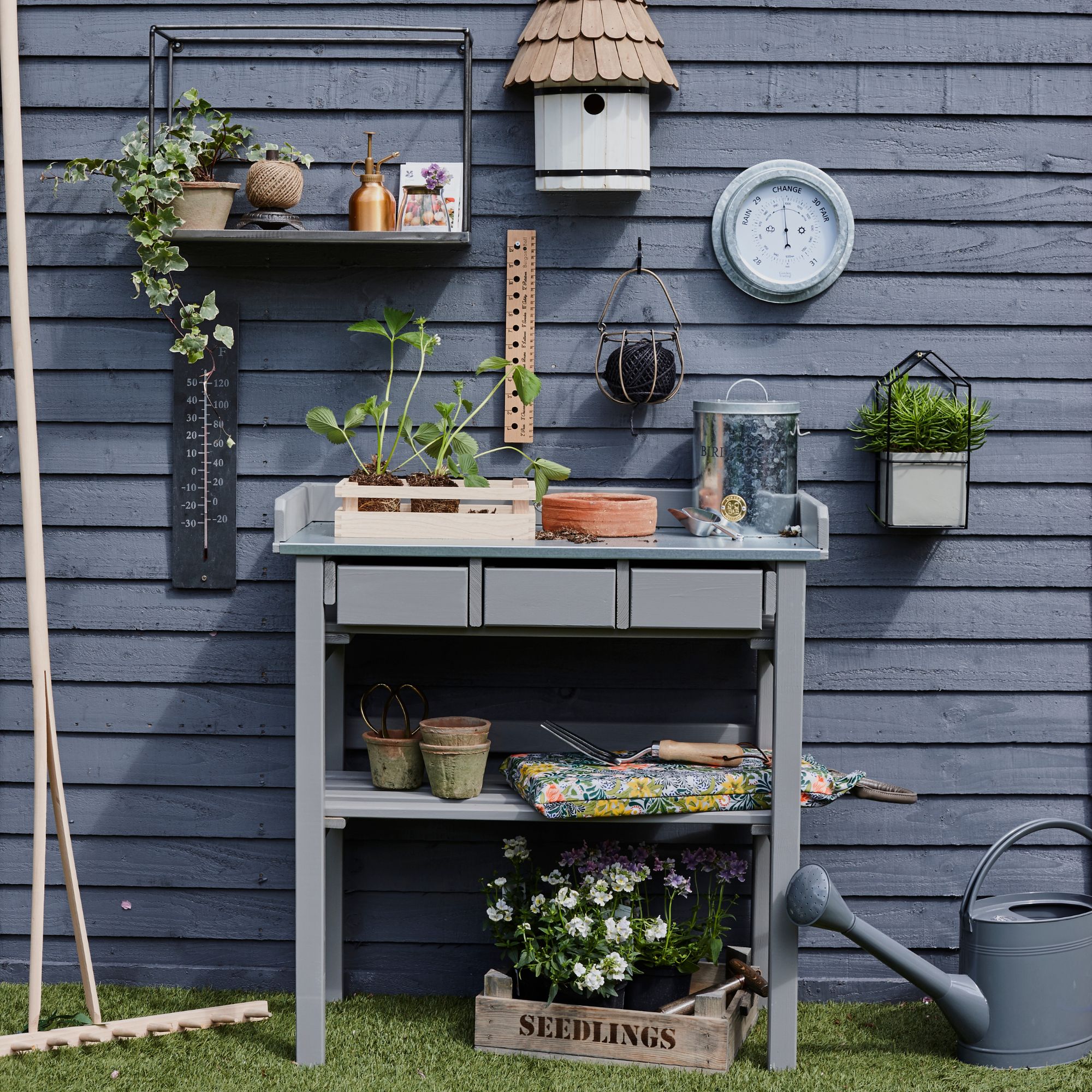
As you probably won’t spend too much time in the garden during winter, this is the ideal time to start bringing your paint ideas to life. But no matter whether you want to paint your bedroom or refresh your living room, you’ll might need to store the paint when you’re done.
However, experts warn that you should never store paint in the shed over winter -especially if you want to use it again in the future. The experts from GardenBuildingsDirect say, ‘Keeping leftover paint in the shed is a common mistake. Storing paint properly is key to maintaining its quality and making sure it can be re-used in the future. Keeping leftover paint in the shed during the winter months could cause it to congeal, separate or dry out.’
If this leaves you wondering what to do with leftover paint, you’ll be happy to know that there is an alternative. As long as you can store it somewhere between 10°C and 27°C and away from direct heat, it should be fine. So, a dedicated craft or DIY cupboard would be ideal.
3. Outdoor cushions
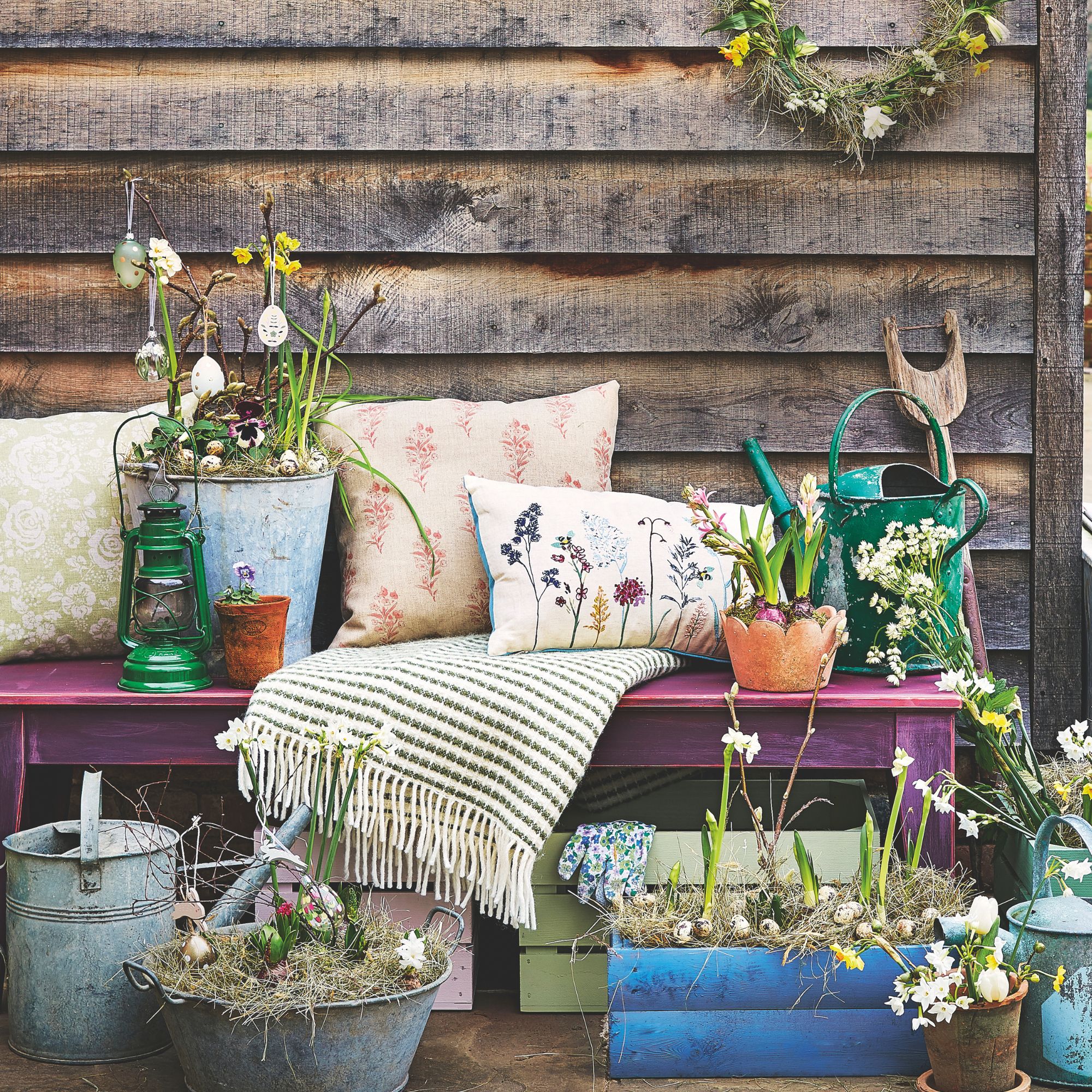
Colourful and bold outdoor cushions can jazz up the best garden furniture in an instant. But while you can store garden furniture outside over winter (provided you invest in an outdoor furniture cover), the same can’t be said for outdoor cushions. Experts warn that these are some of the things you should never store in a shed over winter, along with other fabric items.
GardenBuildingsDirect says, ‘Any old pet bedding, toys or fabrics can become damp and mouldy when stored in a shed and exposed to the elements. So, avoid having to throw away forgotten fabrics by storing them indoors.’
As if that wasn’t enough, storing cushions in the shed over winter could also invite unwelcome guests. The experts at Tiger warn, ‘When incorrectly stored, fabrics can become the perfect nesting area for mice and insects. To stop mice getting into your shed, you should seal any holes so they can't get access and remove any food.’
If you have no option but to store outdoor cushions in the shed, try to keep them elevated off the ground or provide extra protection by storing them in a bag.
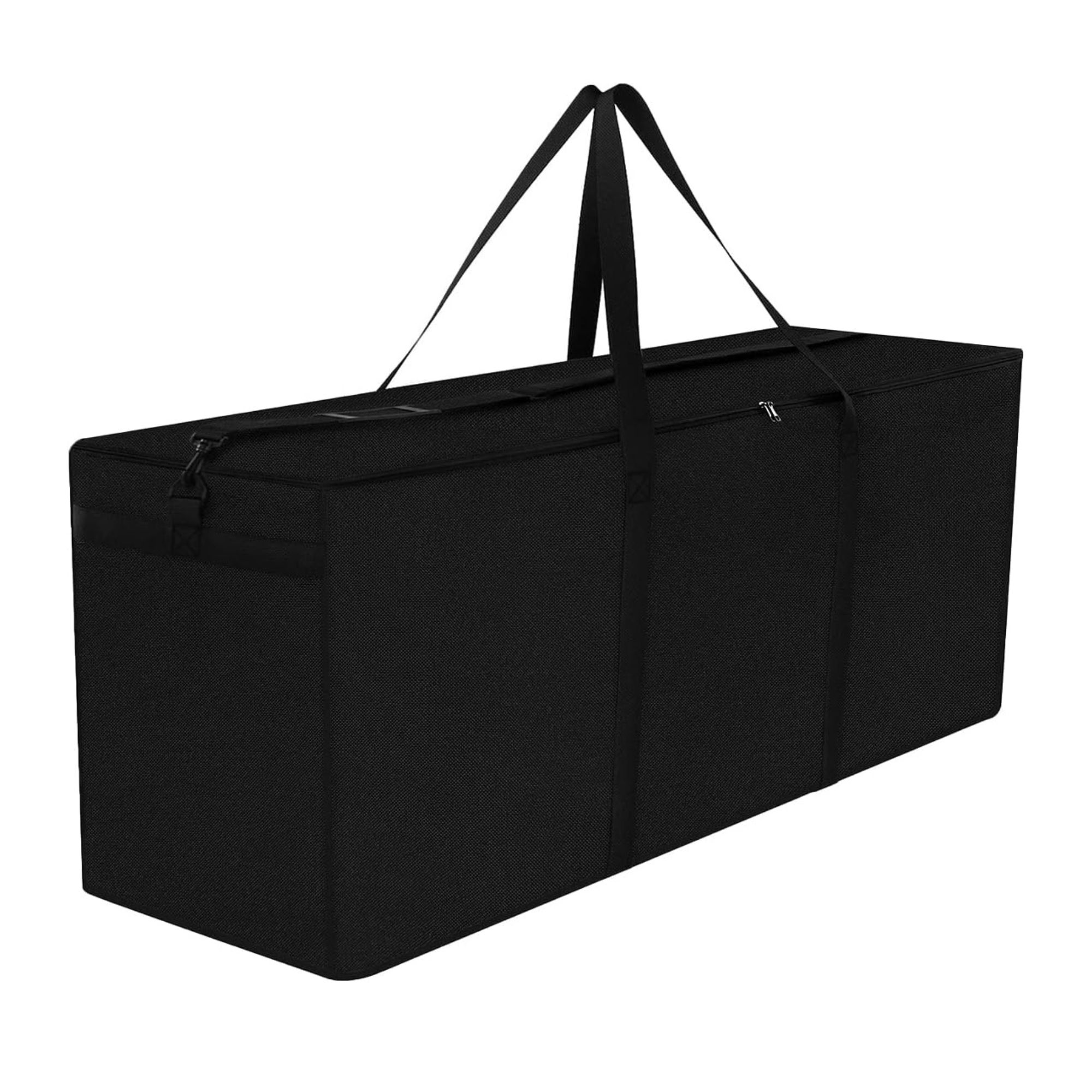
Don't worry if this is too big or too small for your outdoor cushions, as this bag also comes in two other sizes so you can find one that suits your needs.
4. Cleaning products or chemicals
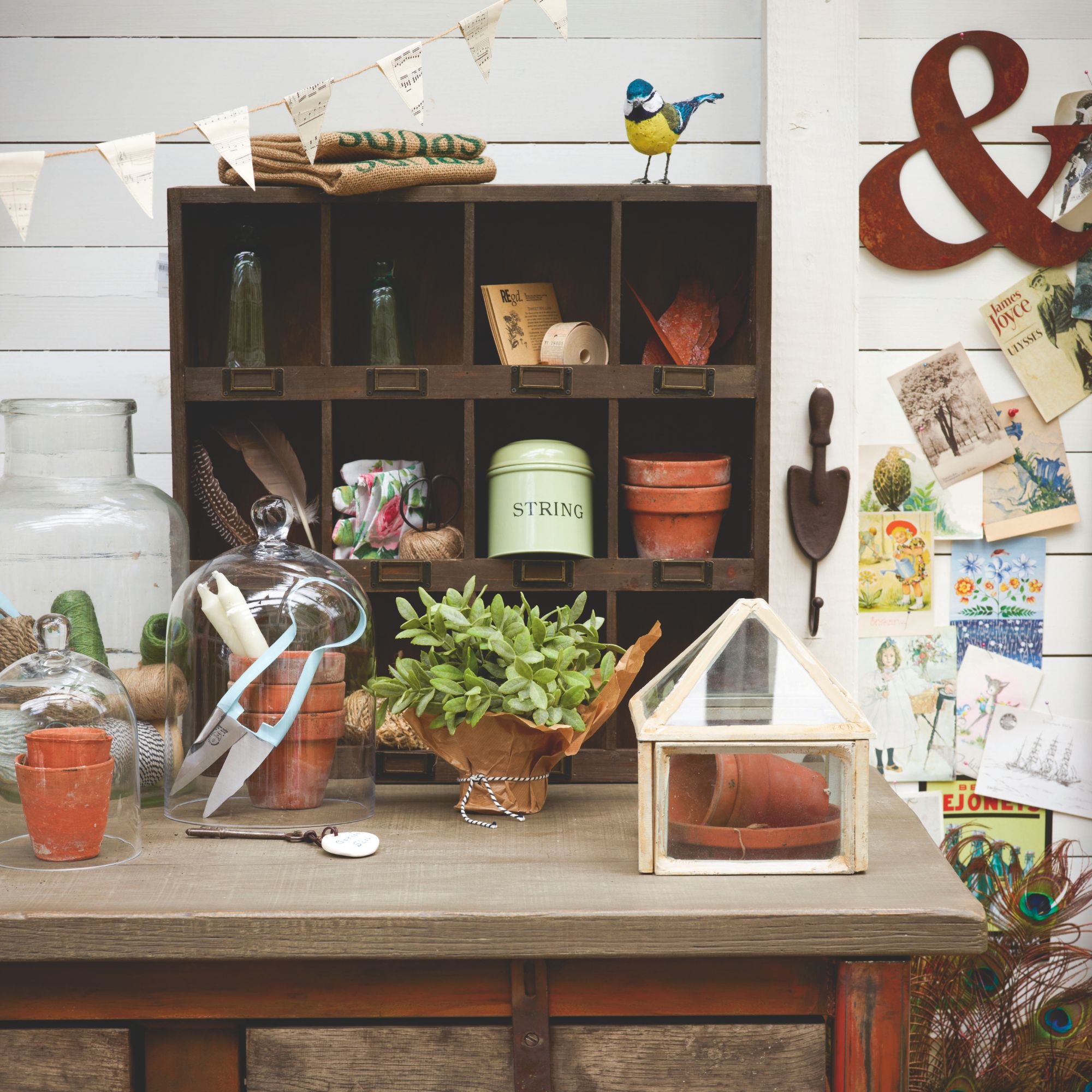
Although we’d always suggest getting rid of weeds naturally and get rid of slugs naturally, we get that sometimes you need something stronger to get the job done.
However, you might want to avoid storing things like weed killers, pesticides, and other cleaning products or chemicals in the shed over winter, as this could come back to bite you come spring.
The GardenBuildingsDirect team explains, ‘Some liquid pesticides can crystallise in cold temperatures, and cold conditions can damage the chemicals and make them more difficult to work with or completely unusable.’
In fact, if you choose to use nematodes to get rid of slugs, storing them incorrectly can render them useless. They need to be stored in the fridge and have a relatively short shelf-life.
If you can, find a dedicated space for them inside your home where you can guarantee stable temperatures instead.
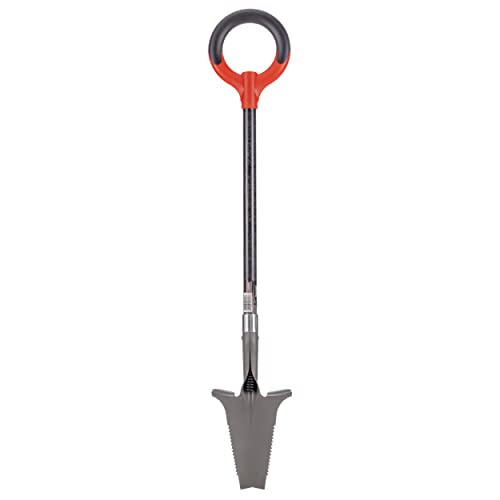
To bypass storing chemicals in the shed over winter, use the Root Slayer instead. Our Senior Digital Editor, Jenny McFarlane, said it was a game-changer when she tested it.
5. Grass seed
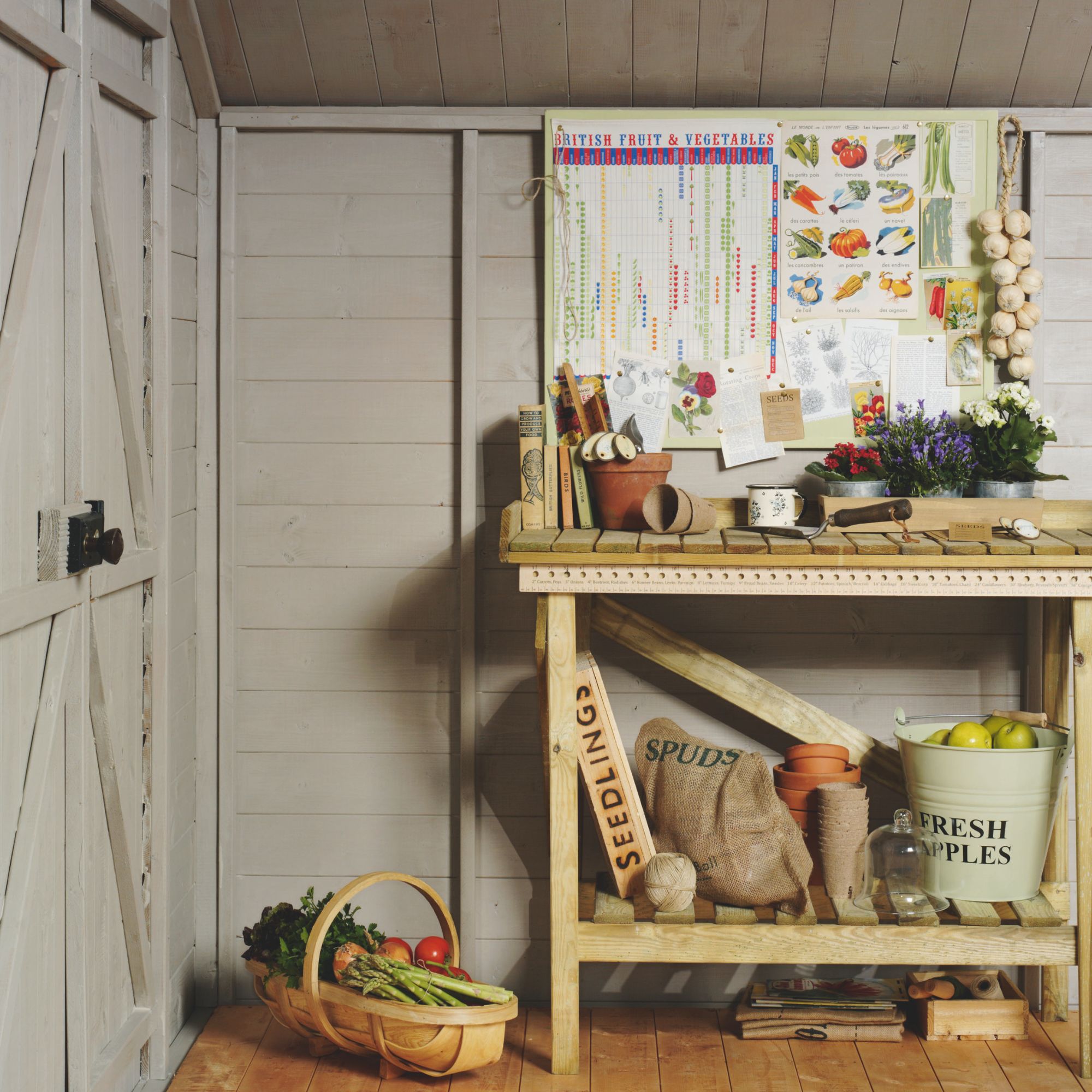
If you’ve sown grass seed this year but not used the whole box, how you store it can determine how long grass seed lasts. While it can, in theory, last a couple of years when stored correctly, the incorrect storage can result in premature germination - and this means you won’t be able to use it.
If you want to use your leftover grass seed again next year, you need to store it properly, and fortunately, your shed isn’t completely off-limits.
Chris McIlroy from The Grass People, ‘Store the bag in cool, dry conditions and out of direct sunlight. A garden shed or garage is fine as you want it protected from the elements so the packaging doesn’t become damaged or wet.’
However, you should avoid this if you have a leaky shed or have no option but to store it on the floor of your shed. As Chris says, Try to keep it off the floor so it doesn’t get damp; on a shelf is ideal, but even just a plastic bag laid on the floor would help add a layer of protection.’
He adds, ‘Keep it sealed and only open the bag when necessary as you want to avoid exposing the seed to air and moisture as this can shorten its lifespan.’
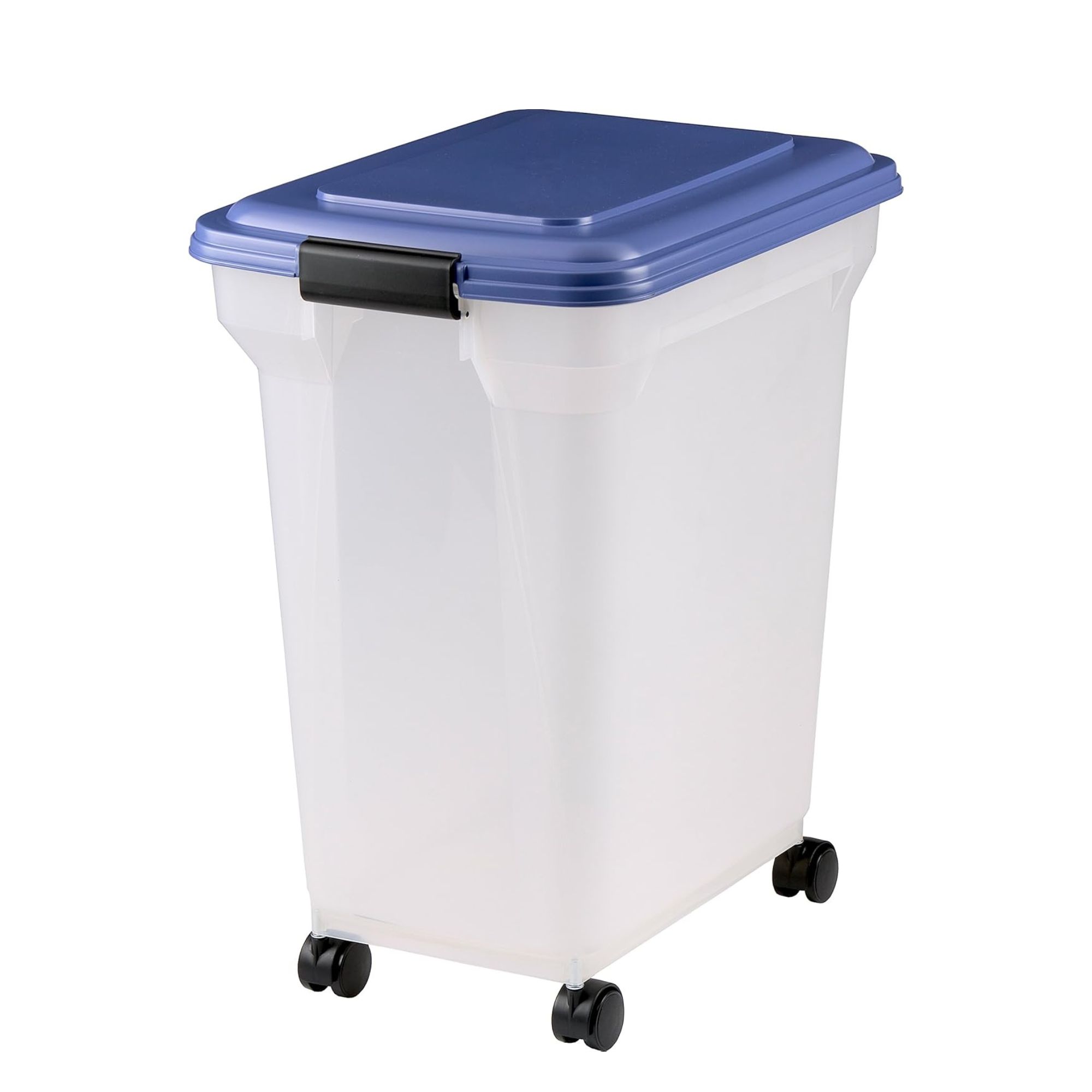
If you have no choice but to store grass seed in the shed, this airtight storage bin will prevent any moisture from getting in. It's also on wheels, which lifts it off the ground.
FAQs
Do things go mouldy in a shed?
Yes, they can do. Sheds are rarely well-insulated, and this can cause a build-up of moisture and condensation during the winter months. There’s nowhere for this moisture to go, so it will settle on exposed surfaces nearby, eventually resulting in mould build-up.
Because of this, while you're getting your garden ready for winter, you should avoid storing anything in the shed that could suffer as a result of this moisture build-up. If you have no choice, take extra precautions by opening up your shed every now and then, storing items in protective bags, and pulling items away from the walls to prevent trapped moisture.
If your shed has electricity, one of the best dehumidifiers might help, or otherwise a moisture absorber (such as these, from Amazon) can help mitigate the damp.
Is it safe to store electronics in a shed?
Although electronics may be safe to store in a shed over the summer months when you get warmer and dryer weather, it’s not advisable to store electronics in a shed over winter. Doing so can cause irreparable damage to the electrical components. After all, sheds can get extremely damp - and we all know that water and electricity don’t mix.
Alongside this, sheds can become a nesting ground for pests sheltering from the winter weather. If this happens, you may find that they start nibbling on cables. This may be dangerous and could potentially pose a fire hazard when you come to use your electronics again.
So, here’s your warning to remove these things from your shed before winter.

Lauren Bradbury has been the Content Editor for the House Manual section since January 2025 but worked with the team as a freelancer for a year and a half before that. She graduated with a Bachelor’s degree in English and Creative Writing from the University of Chichester in 2016. Then, she dipped her toe into the world of content writing, primarily focusing on home content. After years of agency work, she decided to take the plunge and become a full-time freelancer for online publications, including Real Homes and Ideal Home, before taking on this permanent role. Now, she spends her days searching for the best decluttering and cleaning hacks and creating handy how-to guides for homeowners and renters alike, as well as testing vacuums as part of her role as the Ideal Home Certified Expert in Training on Vacuums, having spent over 110 hours testing different vacuum models to date!
-
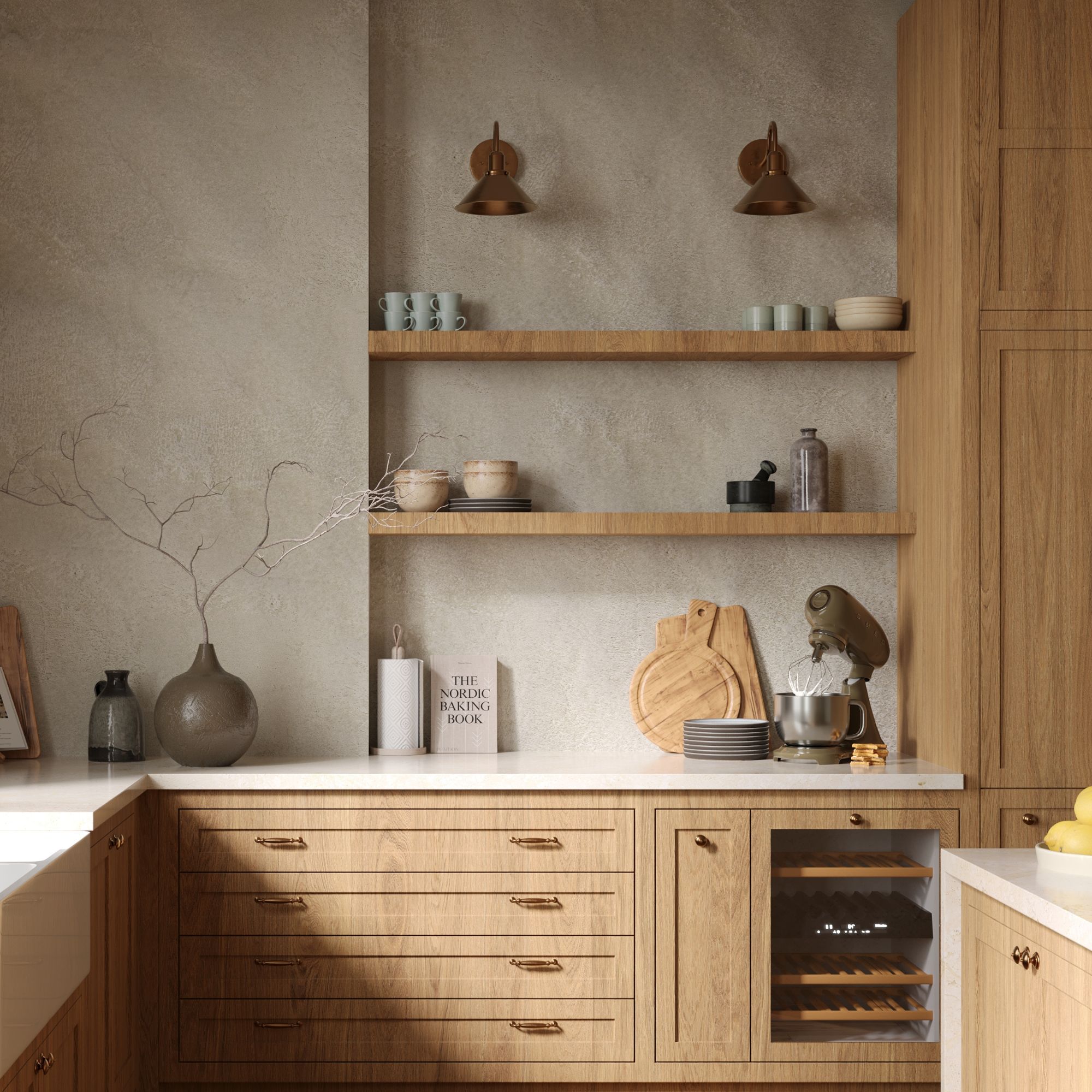 Wood drenching is the calming new twist on the colour drenching trend – here’s how to make the look work in your home
Wood drenching is the calming new twist on the colour drenching trend – here’s how to make the look work in your homeIt’s easier than ever to embrace natural materials
By Maddie Balcombe
-
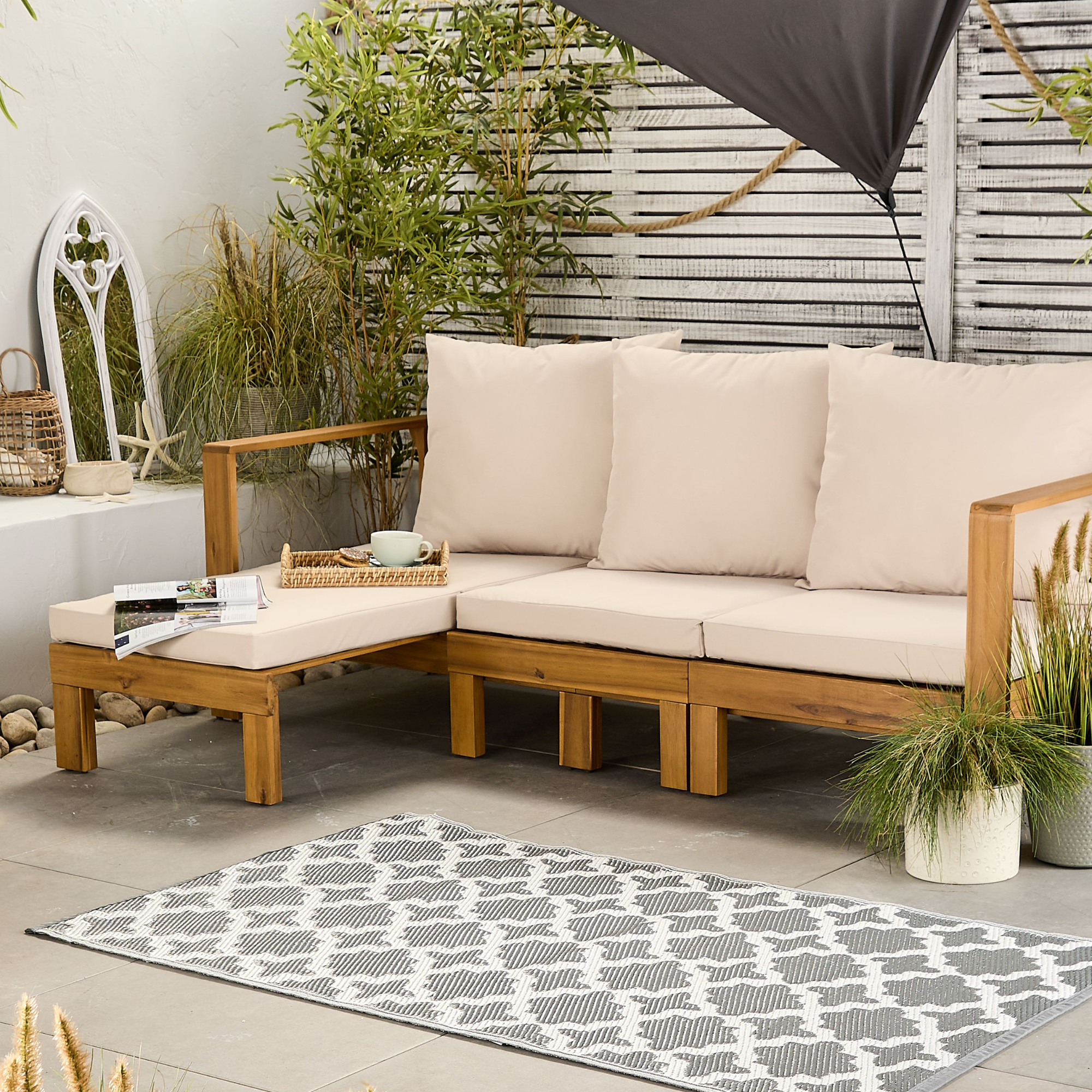 Aldi is launching a £200 day bed with four different features - its sleek design is suited to the whole family
Aldi is launching a £200 day bed with four different features - its sleek design is suited to the whole familyYou don't want to miss out on this Specialbuy
By Kezia Reynolds
-
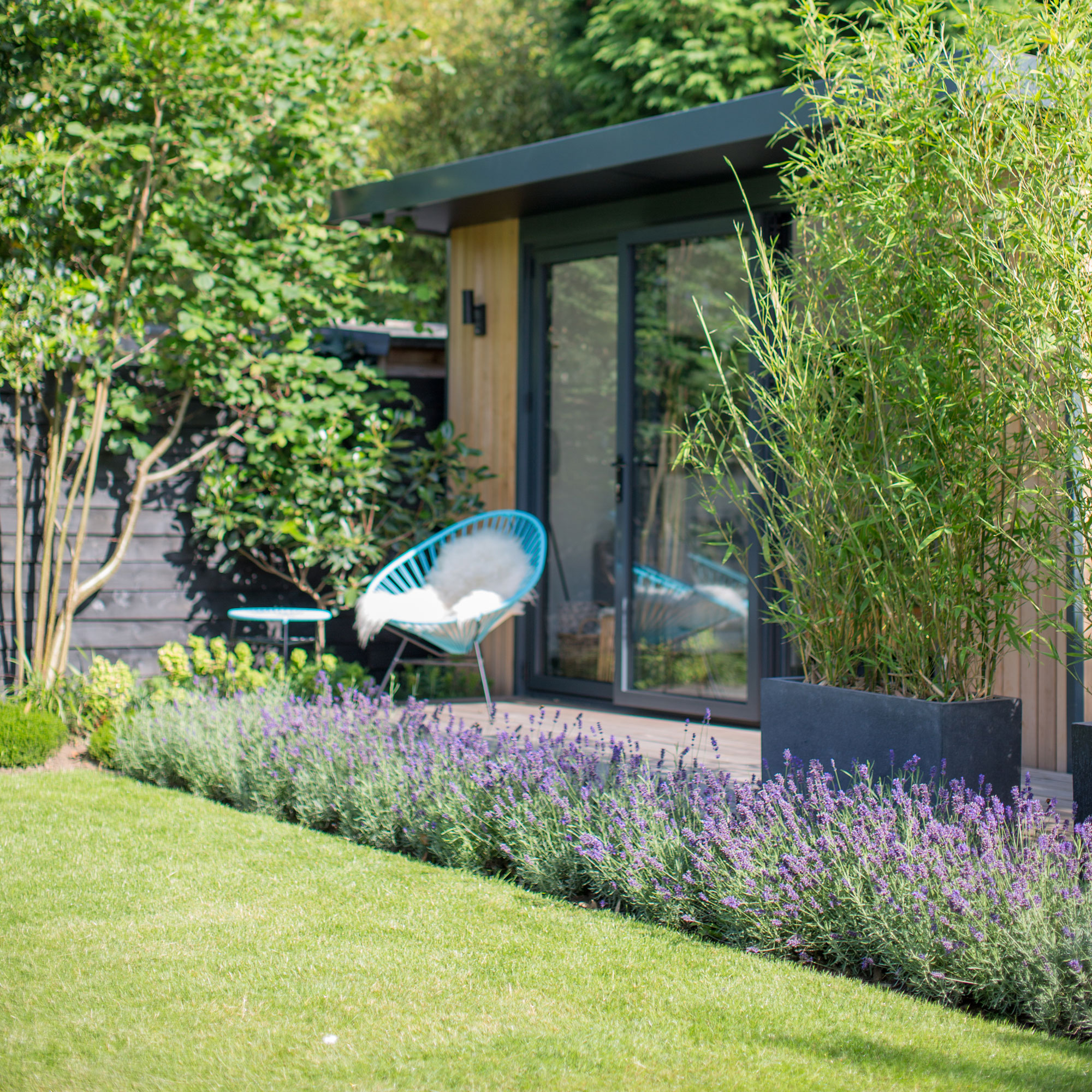 How to set up a drip watering system that saves water and a lot of effort
How to set up a drip watering system that saves water and a lot of effortKeep your plants hydrated (and your water bill down) with this clever garden watering solution
By Natalie Osborn
-
 Aldi is launching a £200 day bed with four different features - its sleek design is suited to the whole family
Aldi is launching a £200 day bed with four different features - its sleek design is suited to the whole familyYou don't want to miss out on this Specialbuy
By Kezia Reynolds
-
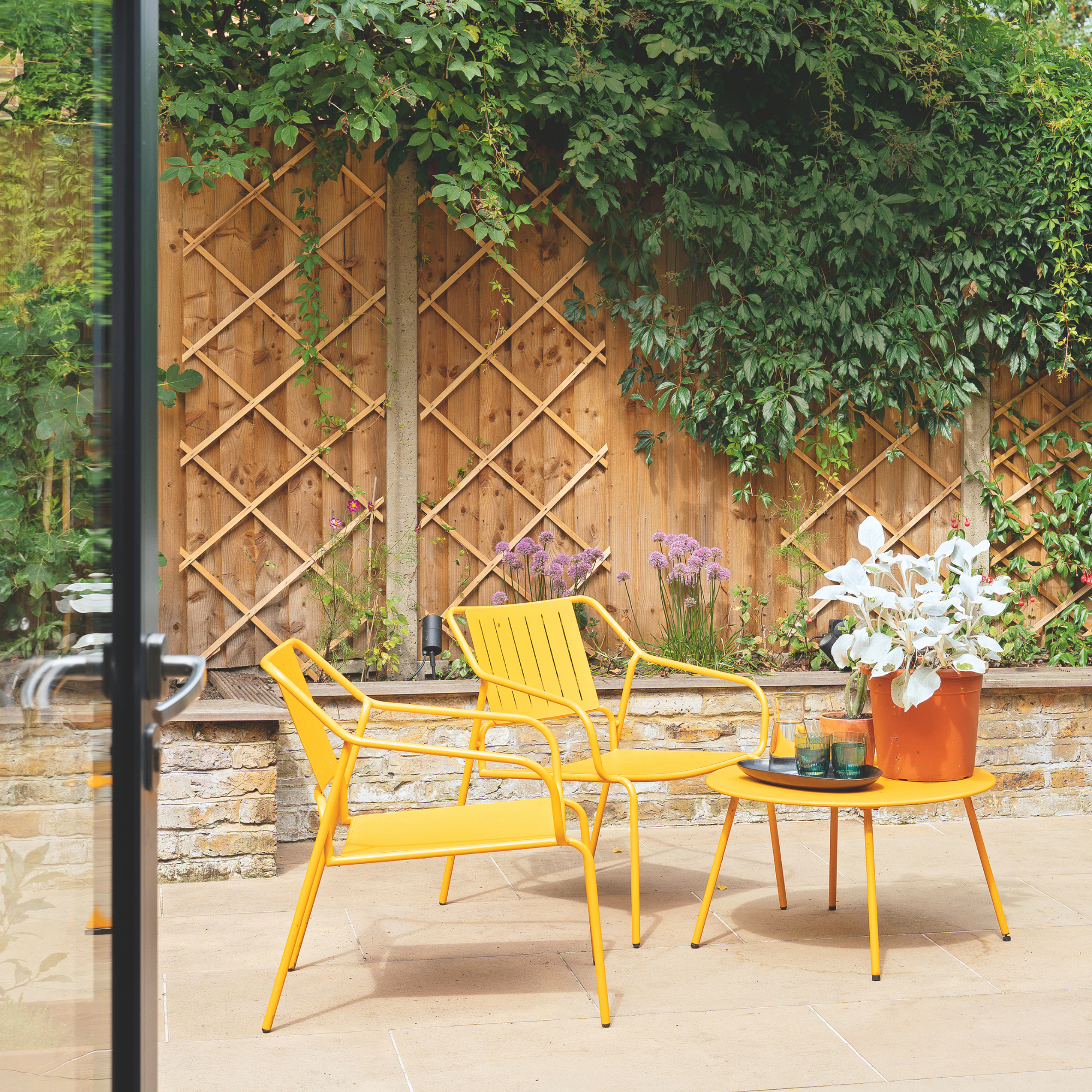 I’m seeing pastel garden furniture at all my favourite brands this spring, but QVC’s sorbet collection impressed me the most
I’m seeing pastel garden furniture at all my favourite brands this spring, but QVC’s sorbet collection impressed me the mostFresh pastel shades are a great way to liven up your outdoor space
By Kezia Reynolds
-
 I spent the afternoon looking through Wayfair's garden sale – these are the 6 pieces I'm buying immediately for summer
I spent the afternoon looking through Wayfair's garden sale – these are the 6 pieces I'm buying immediately for summerThese are my must-have garden buys from the sale
By Holly Reaney
-
 I’ve found the perfect alternative to John Lewis’ sold-out striped garden chair – and you won’t believe where it's from
I’ve found the perfect alternative to John Lewis’ sold-out striped garden chair – and you won’t believe where it's fromJohn Lewis' Sling Garden Chair is one of the most stylish pieces of garden furniture I'd seen – until I tracked down this QVC lounge chair...
By Kezia Reynolds
-
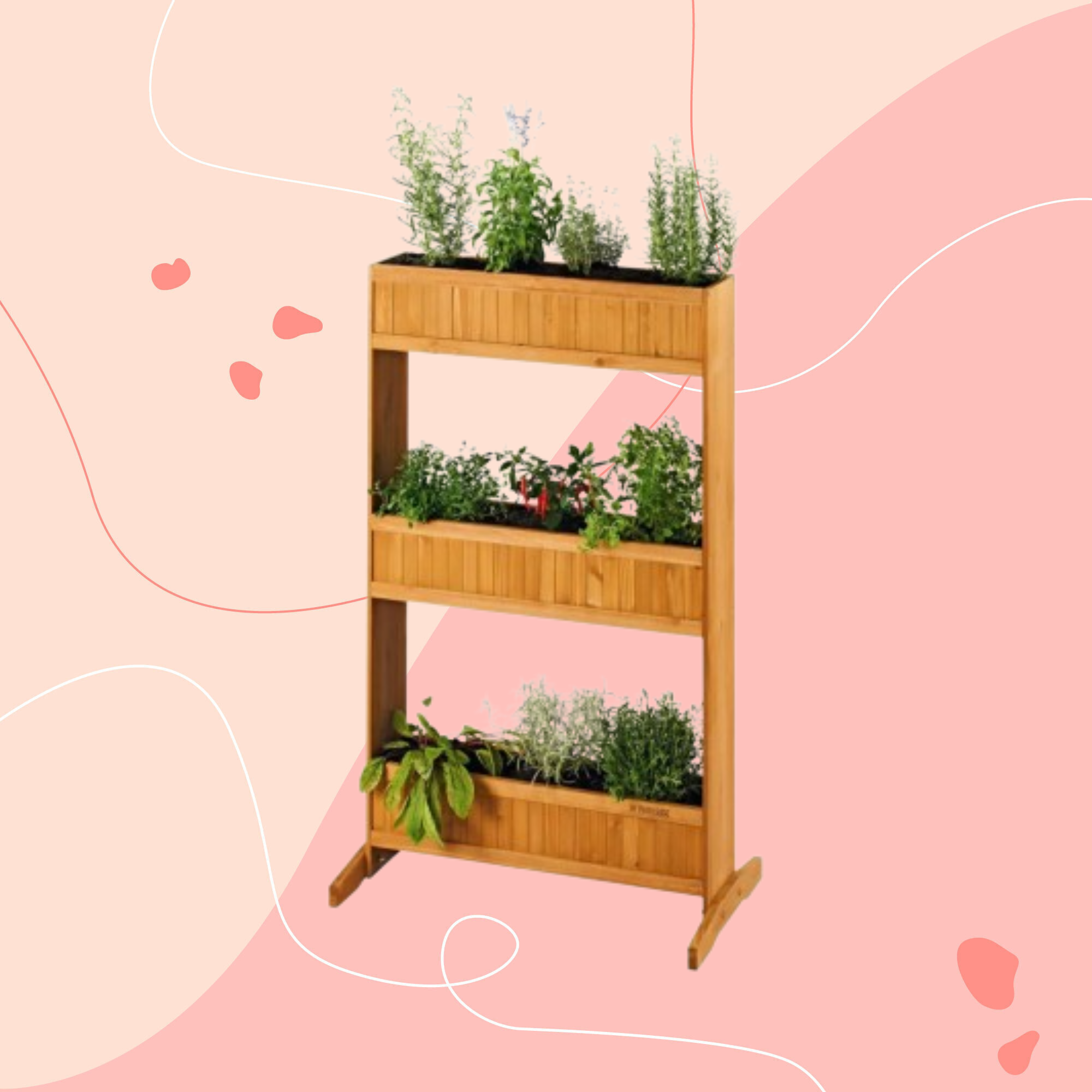 Lidl is selling a smart tiered planter that will unlock extra planting space in a tiny garden or balcony
Lidl is selling a smart tiered planter that will unlock extra planting space in a tiny garden or balconyWhy I've been eyeing this planter up for my tiny garden
By Kezia Reynolds
-
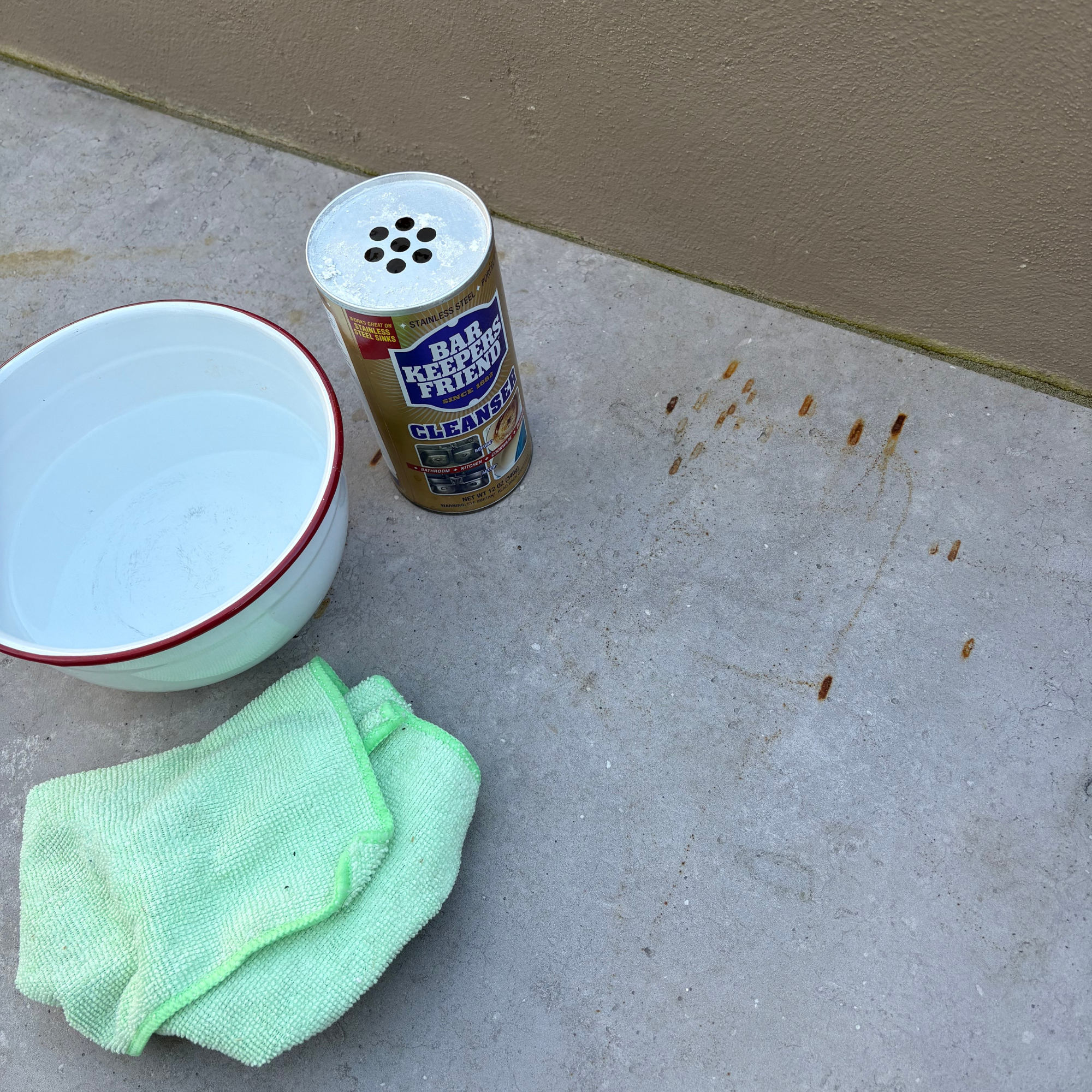 I’ve found the best solution for cleaning stains from a patio - and it’s only £8 on Amazon
I’ve found the best solution for cleaning stains from a patio - and it’s only £8 on AmazonThe stains practically vanish!
By Kezia Reynolds
-
 Lidl’s £15 sun sail is everything you need to create a shady oasis in your garden – and it’s on sale right now
Lidl’s £15 sun sail is everything you need to create a shady oasis in your garden – and it’s on sale right nowWith two stylish colours available, the sun sail will make a chic yet practical addition to any of your garden.
By Kezia Reynolds
-
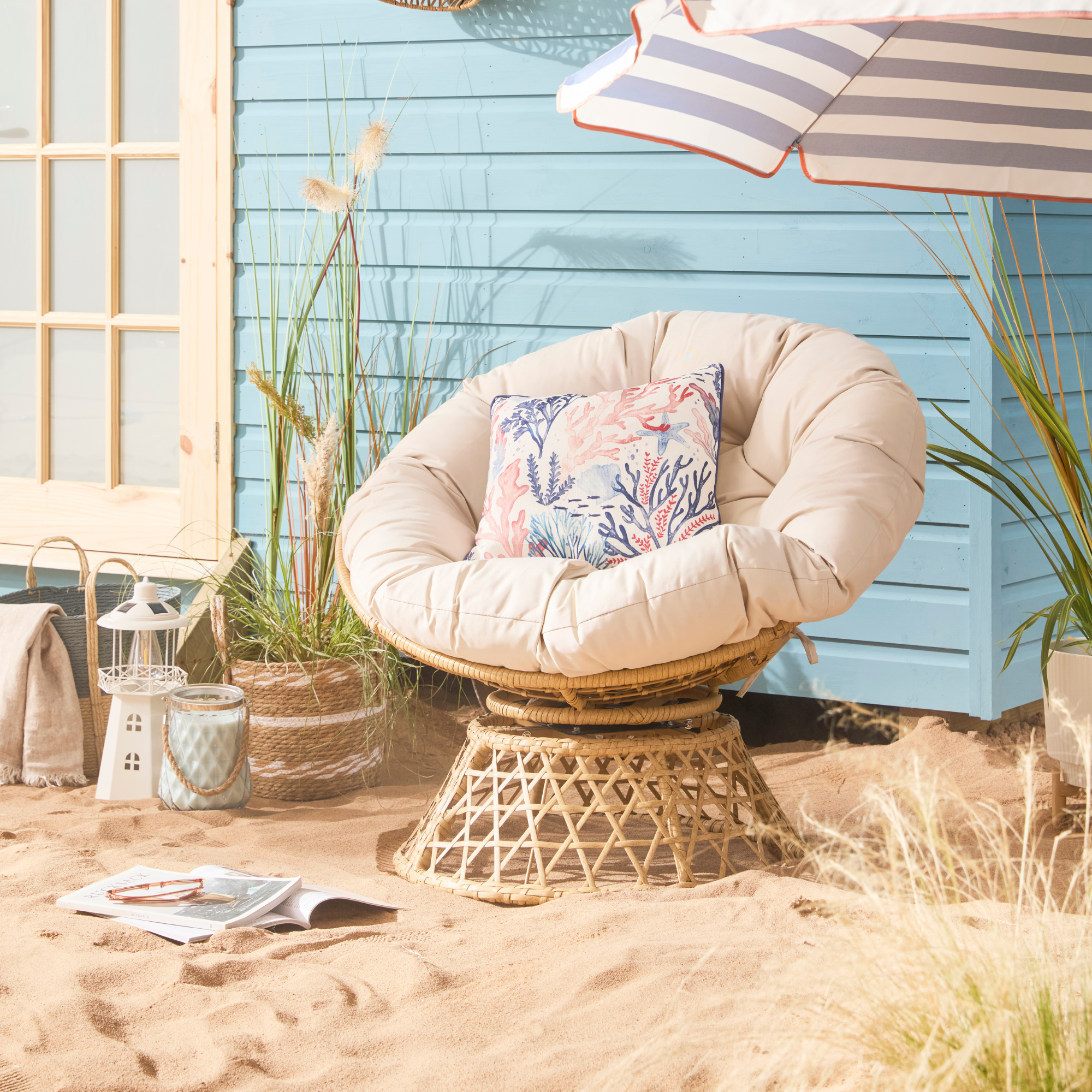 B&M has nailed 2025's breakout garden furniture trend - it's one of the most affordable and stylish I've seen
B&M has nailed 2025's breakout garden furniture trend - it's one of the most affordable and stylish I've seenGet the luxe look for less
By Kezia Reynolds